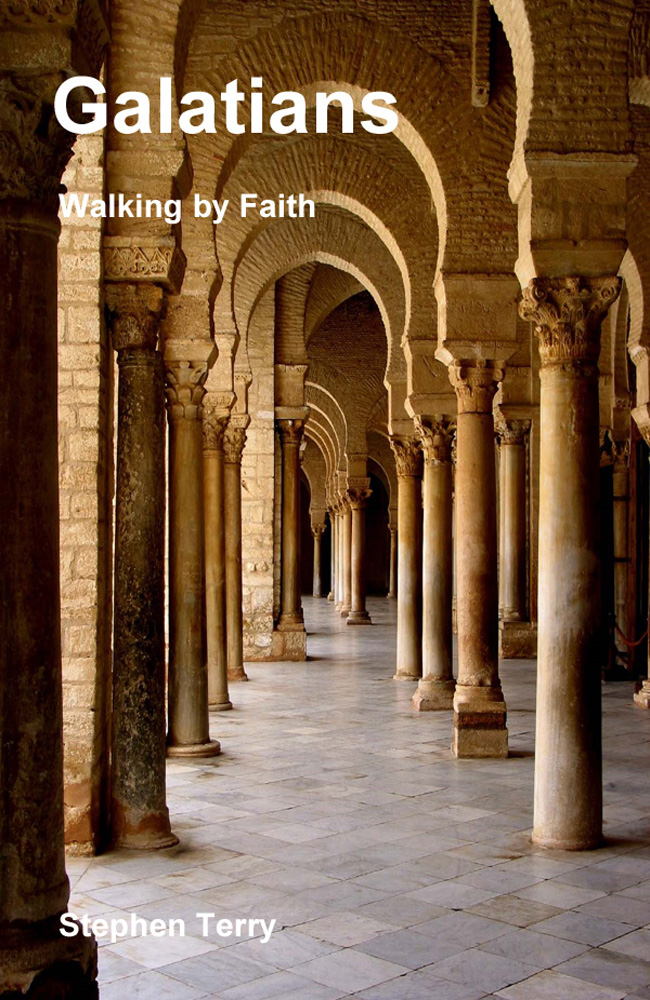Last
Day Events
Stephen
Terry
Commentary
for the June 11, 2016 Sabbath School Lesson
 “Because
of the increase of wickedness, the love of most will grow cold, but the one who
stands firm to the end will be saved.” Matthew 24:12-13, NIV
“Because
of the increase of wickedness, the love of most will grow cold, but the one who
stands firm to the end will be saved.” Matthew 24:12-13, NIV
Over the six and a half decades of my life, I have seen
many changes in both the secular world and in the institutional church. In the
secular world, at the same time that we see a growing tolerance for divergent
lifestyles, we also see a growing intolerance for the rights of minority ethnic
groups across the globe. We have become a society that fights for greater
freedom of sexual expression, but cares little for protecting the lives of the
unborn. The United States prides itself on great strides being made in the
interests of equality, yet we continue to imprison for ridiculously long times and
in greater numbers people of color. For some reason we find it easier to
tolerate public, simulated sexual acts in a Gay Pride Parade than we do a black
teenager walking the streets of a predominately white suburb. Don’t get me
wrong. I am not seeking to castigate one sin over another so much as illustrate
the hypocrisy of flaunting our supposed right to a favorite hobby horse without
seeking righteousness for those who do not enjoy our favored-person status. We
fail to pass the test of equitable justice when we seek only justice for our
own demographic and not for others.
Perhaps self-seeking is the essence of sin, its very
nature. We want more for us. We deserve it and we are going to take it. We
refuse to walk humbly, especially if we have the power to avoid it. We have
this desire from a very early age. Who has not tried to get their own way from
childhood? We throw tantrums challenging our parents’ ability to exercise
control over our behavior. We attempt to manipulate baby sitters and substitute
teachers, knowing that as surrogates, they have gaps in their knowledge of how
things are done that we can exploit. As budding wunderkinds of legal interpretation, we seek out every loophole in
the instructions left by parent or teacher, and even with our parents we play
off the strengths and weaknesses of each parent to advance our self-centered
agenda. It should not be surprising then that young men and women in the first
flush of adulthood seek to throw off commonly accepted restraints, not because
it is logical to do so, but simply because they can.
In this age of helicopter parenting, where every whim of
a child is golden and righteous, those who are responsible for upholding order
and decency find their highest purpose in enabling public fulfillment of desire.
Little Johnny or Suzy find that their perversions become recast as
precociousness, and any idea of restraining such indulgences are recast as
damaging to the child’s self-esteem. If one’s self-esteem is threatened by
societal norms, then better to cast those norms aside and every aspect of
petulance should be employed to make it so.
To be sure, in spite of this, some have found a moral
perspective through their introduction to the Kingdom of God. However that
kingdom has long since been seized by the violent[i] and drawn in a direction
that leaves it bereft of the moral force that is its birthright. Those who
continue to cling to that moral imperative often find themselves at odds with
the institutional church. This is because those who are in positons of power
within that organization use a faux morality to secure power and control.
Instead of building the Kingdom of Heaven, their fiefs are here on earth. They
build barriers between their petty kingdoms and the sources of secular power,
ostensibly to keep the pollution of the world from penetrating their domains.
Strangely though it parallels more the work of an abusive spouse who seeks to
control every interaction the abused has with those outside of his or her
influence. As a result, the more normative relationships seem to occur outside
the institutional church, where such controlling behavior is limited.
Whether we are referring to Elijahs, Elishas, Jeremiahs,
Ezekiels, or even the Messiah, all seem to have been prone to operate their
ministries outside the purview of the institutional church of their day. Those
ministries often even challenged the perceptions of self-righteousness that is
commonly a pitfall of such power-hungry, ecclesiastical bureaucracies. Often
these institutionalized religions become more invested in perpetuating
themselves than in providing moral direction in a politically risky
environment. For example if the church is challenged and membership
significantly declines over a peculiar moral position, that position is often
revisited in a quest for biblical justifications for re-interpreting the
position in a less confrontational manner, assuming it cannot be done away with
altogether. If successfully done, membership may begin increasing once again
and coins also will once again be rolling into the offering baskets. However,
while this all sounds like a prescription for advocating a conservative church
politic, such a perception is itself dangerous.
Because of the highly isolated nature of
institutionalized religion, the normal checks and balances on power that may
exist in a secular, democratic society may not exist in the church. Those
checks and balances can serve to prevent us from interring all individuals of a
particular race, such as the Japanese, in interests of national security, or
barring that an opportunity to redress such an error when committed.[ii] Without those checks and
balances, a moral imperative can quickly morph into a “witch hunt.” Because the
accused have very few rights in the institutional church, they may be quickly
tried and condemned through a series of closed-door meetings they are neither
made aware of nor have a right to participate in. As a result, their
predetermined guilt only lacks the validation of a public meeting to lend a
semblance of fairness to the proceedings. However, with conclusions foregone,
such meetings generally are more of the nature of “kangaroo courts” no matter
what testimony or evidence the accused provides.
While an argument may be made that any organization has
the right to control access to membership based on commonly agreed upon
standards, such an argument rings hollow when we come to understand that no one,
not even those exercising such power, is free of the taint of sin.[iii] The previously mentioned
prophets and Jesus made very telling proclamations regarding the sinful
behavior of those who sit in those “seats of power.”[iv] Therefore we find
ourselves with the conundrum of a sin laden bureaucracy of an institutionalized
church directing the removal of sinfulness from within while trying to preserve
itself as an organization. What a futile and self-defeating exercise in weed
pulling.[v] This seems especially so
when we realize that dealing with the problem of sin has been reserved to God
at the Parousia.
Granted the Old Testament had a more direct approach to
sin, even to the imposition of capital punishment on the sinner, but Christ
changed that. He took that capital punishment upon Himself which dramatically
altered our relationship to sin and God. Whereas the punishment for sin was formerly
swift and dramatic, now it became a continuing number of opportunities to
repent and turn back toward God, a series of “seventy-seven” opportunities.[vi] Perhaps in setting aside
this responsibility for dealing with sin, God was providing man a chance to
overcome a problem that arose in this previous dispensation and continues to
exist today among those who draw their inspiration primarily from those Old
Testament experiences. Man has often found it far too easy to replace love for
others with condemnation. This is perhaps even more so when we do not
understand a situation. Since we often do not have all the facts, entrusting
the power of life and death to mankind is a frightful business. If secular courts
have at times been wrong, are we somehow through some inherent insight we
possess, immune from such mistakes?
When we eschew the mandate to love one another in favor
of the rooting out of sin, we may be contributing to the nastiness of last day
events. We may be allowing the sin we see around us to drive love from our
hearts. A chilling coldness can replace what should have been warmth. But it
doesn’t have to be that way. The same God who gives a multitude of chances to
those outside the church continues to call those of us inside it to repentance
as well. We can turn to God and begin building bridges of love to the lost
instead of walls of condemnation to protect ourselves from the taint of the
world. Those walls were never very effective anyway. If we can stand firm in
loving others as God has loved us, we will find ourselves in His house one day
in one of the special places He has built for us.[vii] That will be so much
more pleasant than the walls we surround ourselves with now. I can hardly wait.
